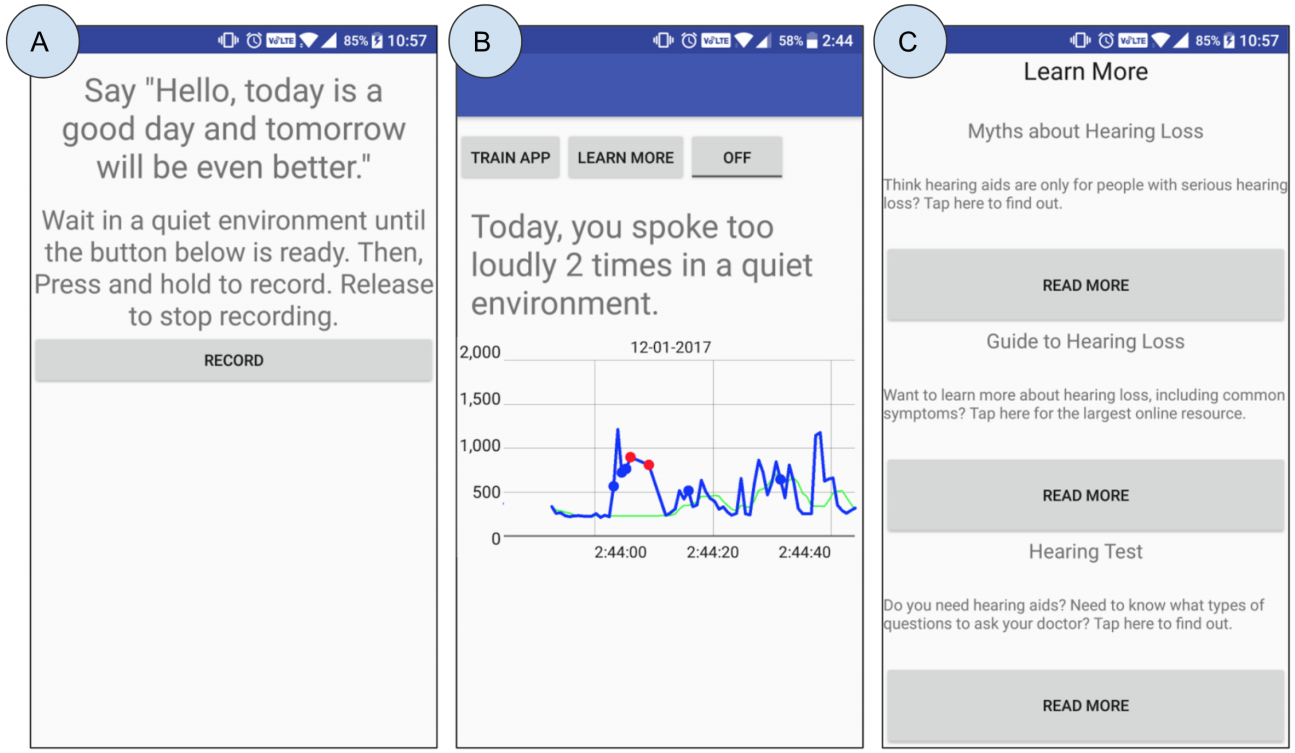
Maestro: Encouraging Engagement with Assistive Technology through a Minimally Disruptive Haptic Volume Regulation Aid
Evan Strasnick, Jingyi Li, Crystal Tjoa
Stanford University, 2017.
Despite the benefits of assistive technologies, many hard of hearing individuals consider hearing aids to be an unattractive solution, citing reasons like cost, social stigma, and inconvenience. Many others hold the belief that they do not need or would not benefit from assistive technologies. We present Maestro, a “gateway” assistive device that allows individuals to grow comfortable with using assistive technology and to explore its benefits without purchasing hardware, disrupting their daily practices, or showing visible signs of usage. Maestro addresses a common subproblem of hearing impairment: self-regulation of speaking volume. It uses a commodity smartphone (and optional smartwatch) to deliver discreet haptic feedback cues when the user speaks at an inappropriate volume relative to their surrounding context. Users can then review visualizations of these incidents to better understand when they might benefit from an assistive technology. We describe our design considerations, implementation, and early evaluation results demonstrating that users can quickly incorporate feedback from Maestro to improve their volume control.

